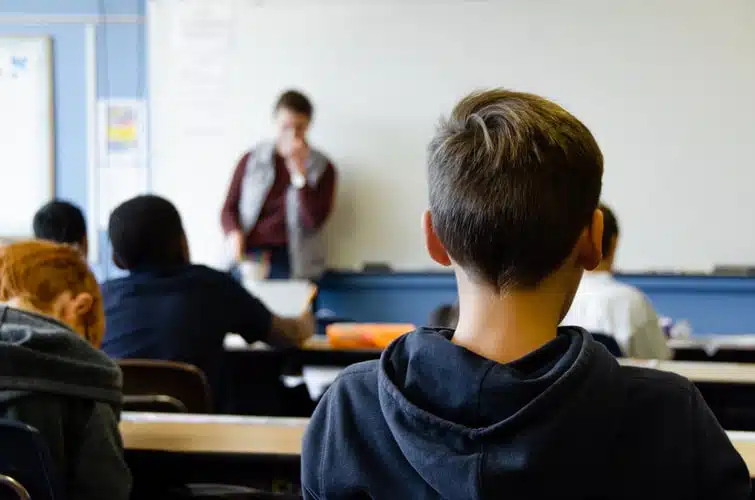Almost a half of secondary school teachers do not feel confident teaching sex and relationships education, according to a joint survey by the NSPCC and education union NASUWT.

The majority of teachers (86%) feel they need more resources and training in this subject area and 57% think the level of support from the government has been poor, the survey also found.
One teacher surveyed said: “I’ve never been trained, and I’ve always delivered this curriculum on personal, social, citizenship and health education (PSCHRE) days with a large group of students, most of whom I do not know. Not having a rapport with these students makes it harder to teach sensitive topics meaningfully.”
The poll also found:
- Over a quarter of teachers don’t feel confident answering difficult or sensitive questions in lessons.
- 40% don’t feel confident delivering lessons on pornography
- Less than a third feel very confident delivering lessons on consent
- Only 19% feel very confident delivering lessons on harmful sexual behaviour and sexual harassment.
The NSPCC is calling on the new Secretary of State for education, MP Kit Malthouse, to prioritise guidance and training around sex and relationships education.
The charity has also launched a UK-wide service called Talk Relationships, which includes:
- An online e-learning course which is free for a limited time
- 14 lesson plans developed in partnership with the PSHE Association
- Lesson plans focusing on a wide range of topics that are included in the curriculum such as sexual harassment, healthy relationships and sharing sexual images.
The Talk Relationships eLearning aims to increase teacher confidence in areas such as responding to safeguarding concerns in a classroom setting, managing challenging questions from young people and leading inclusive discussions.
NSPCC are also launching a dedicated helpline, where experts will offer help and advice to any teacher with a question or safeguarding concern.
Maria Neophytou, NSPCC Director of Strategy and Knowledge said: “Sex and relationships education is vital for young people as it helps them understand the difference between healthy and unhealthy relationships, and that they have a right to be safe, heard and respected.
“The NSPCC has championed a holistic approach towards sex and relationships education across the UK for many years and following on from the thousands of testimonies off the back of the Everyone’s Invited movement, it’s clear that this education is now more important than ever before.
“Therefore, it’s essential there are resources available to teachers like those provided in Talk Relationships so they can feel confident engaging with pupils and delivering a range of diverse topics, whether consent, sexuality or online safety,” she added.
Diane Wills, an Independent Social Worker, forensic risk assessor and Quality Assurance Consultant at WillisPalmer, said: “We are subject to such mixed messages about sex in our society that it’s no wonder teachers don’t feel confident in teaching this subject. It is everywhere and yet hardly spoken about other than in whispers. The Disneyfication of relationships also does nothing to help people choose healthy partners and to be able to navigate the complexities of friendships and intimate relationships.
“So teachers are operating in a very messy eco system of wider societal norms, organisational fear of teaching something outside of the traditional curriculum and their own conscious and unconscious feelings about sex and relationships. Not to mention having to deal with the parents who might on the one hand be pleased to abdicate responsibility but on the other, a step too far with the information might provoke complaint.
“We need to get healthier as a society if we’re going to empower not only schools but parents and all adults to speak to our children in a healthy way about sex and relationships.
“I work on the other side of the fence with men who have caused some really serious sexual harm. I know how important it is to talk frankly about these subjects which is what I do with my own daughters. People know when we’re really squirming about a subject and that just reinforces the message that sex and relationships are something to be firmly kept behind closed doors, that indeed it is shameful. This is not a helpful message,” concluded Diane.

